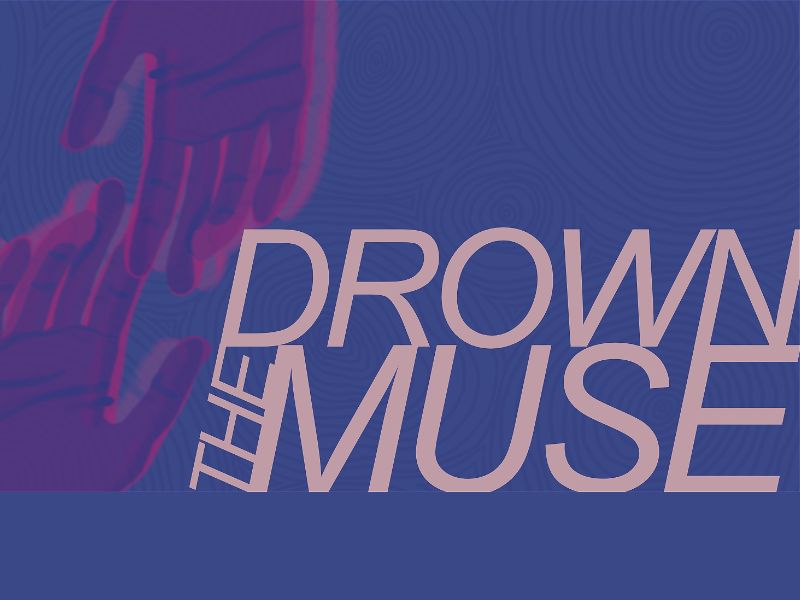I imagine that many an aspiring thespian will relate viscerally to the audition anxiety and performance insecurity that are centerstage in Drown the Muse, a new chamber opera performed by lyricists and book writers Hannah Phipps and Zoë Bowen Smith, who in a miscellany of sketches, songs, arias, and monologues have drawn from their own lives a remarkably earnest and honest self-portrait. A portrait of two selves, actually, two friends who are each seeking to discover through the art of acting a sense of worth.
Though as a whole the show is uneven and director Jen Jacobs has lent it a languid pace, there are high points, notably the lovely music composed by Grace Brigham and Andrew Mauer, played with exceptional skill by a string quintet (Anna Raphael, Mattie Branson-Meyer, Cindy Zhang, Shunya Kuroda, and Melody Flores) and conducted by Mauer on piano. Indeed, the performance of this upstage orchestra is so pleasant it often surpasses the singing.

An early sketch has Phipps and Smith tip-typing on cardboard laptops and “leading a double life” in an amusing musical number called “Silly Little Day Job.” (“Is it worse to be a failure than forgotten?”) In another exchange they share about wanting to be “special” and wanting to be “unique and liked.” (“I didn’t want to be perfect, just to be safe.”)
Whereas earlier Phipps auditioned for Smith, in a subsequent scene Smith portrays an acting student for Phipps, who plays her teacher. The scene sets up an insightful song sung by Smith, “How to See Me” (“You have to teach people how to see you”), and a painful monologue, the gist of which is “I am so scared of failing. I am so scared of being who I am.”
Phipps’ evidently trained singing voice lends itself to opera; Smith’s is well suited to musical comedy. And while one might think that distinct vocal difference might introduce an interesting musical tension between them, for the most part, it results in an imbalance of communication: Phipps’ operatic delivery lacks sufficient articulation for comprehension of the lyrics — gorgeously emotive tonality, impossible-to-follow content; meanwhile Smith’s more belting, broad, and accessible vocal delivery knocks the show’s smart lyrics out of the park. And Phipps and Smith’s lyrics are studded with such delightfully acerbic and poignant turns of phrase, one wishes for supertitles.
While there isn’t much storyline to speak of, nor much in the way of dramatic character development, the show does depict persuasively two youthful performers’ existential angst experiencing acting as healing, sport, and dream — and their quest, as Smith says, for “the courage to be unabashedly scary good.”
Running Time: 60 minutes.
Drown the Muse plays July 14 at 6:00 pm, July 16 at 8:30 pm, July 22 at 4:45 pm, and July 23 at 1:00 pm at DCJCC–Theater J. Tickets are $15 and can be purchased online.
Book and Lyrics by Hannah Phipps and Zoë Bowen Smith
Directed by Jen Jacobs
Featuring: Zoë Bowen Smith, Hannah Phipps
Music by Grace Brigham & Andrew Mauer
Sound Designer: Garrett Parker
Stage Manager: Julia Haupt
Lighting Designer: Cassie Keating
Music Direction and Piano: Andrew Mauer
Violin I: Anna Raphael
Cello I: Mattie Branson-Meyer
Violin II: Cindy Zhang
Cello II: Shunya Kuroda
Viola: Melody Flores
Genre: Musical
Age appropriateness: Recommended for children 13 + older
Profanity: yes
The complete 2023 Capital Fringe Festival guidebook is online here.




